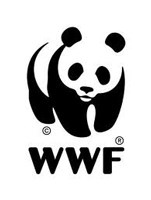Calls for responsible management of resources

According to the WWF, the most serious of these is over-fishing and is linked to other wasteful practices that result in as much as 40,4% of the estimated total marine catch comprising non-target species such as seabirds, turtles, sharks and other fin fish.
WWF's senior programme manager marine, Dr Samantha Peterson has called for more communities in South Africa to address issues such as the food security of our oceans. She says that South Africa has a long history of responsible fisheries policies and initiatives such as the Ecosystems Approach to Fisheries management helps to protect marine ecosystems as a whole.
The approach depends on balancing the diverse needs and values of current and future generations of South Africans and is a globally accepted means for managing fisheries. In summary, the programme comprises:
- Undertaking an ecological risk assessment;
- Identifying areas of concern;
- Prioritising issues;
- Identifying management targets and indicators;
- Reviewing and measuring progress.
The WWF's responsible fisheries programme is maintained by a small team that is dedicated to implementing the EAF management processes in South Africa and Namibia.
The South African coastline comprises about 11 000 marine species and the cold waters of the West Coast provide the bulk of the catch for commercial fisheries while the warmer and more diverse shores of the East Coast attract tourists and small scale fishermen.
There are about 30 000 subsistence fishermen located mainly along the shores of the Eastern Cape and KwaZulu-Natal. The WWF says that overall South Africa's fish stocks are in relatively good shape but poor management and well-organised international crime is devastating some of the resources.
It says that six of the 10 most popular inshore line fish are classified as "collapsed" while high-value stocks such as abalone have been decimated by crime and some areas have been completely stripped of these shellfish.
Read more:
About Paddy Hartdegen
- Seed manufacturer sought suitable partner - 23 Sep 2011
- Peanuts may boost Zimbabwe's poor farmers - 19 Sep 2011
- Calls for responsible management of resources - 14 Sep 2011
View my profile and articles...